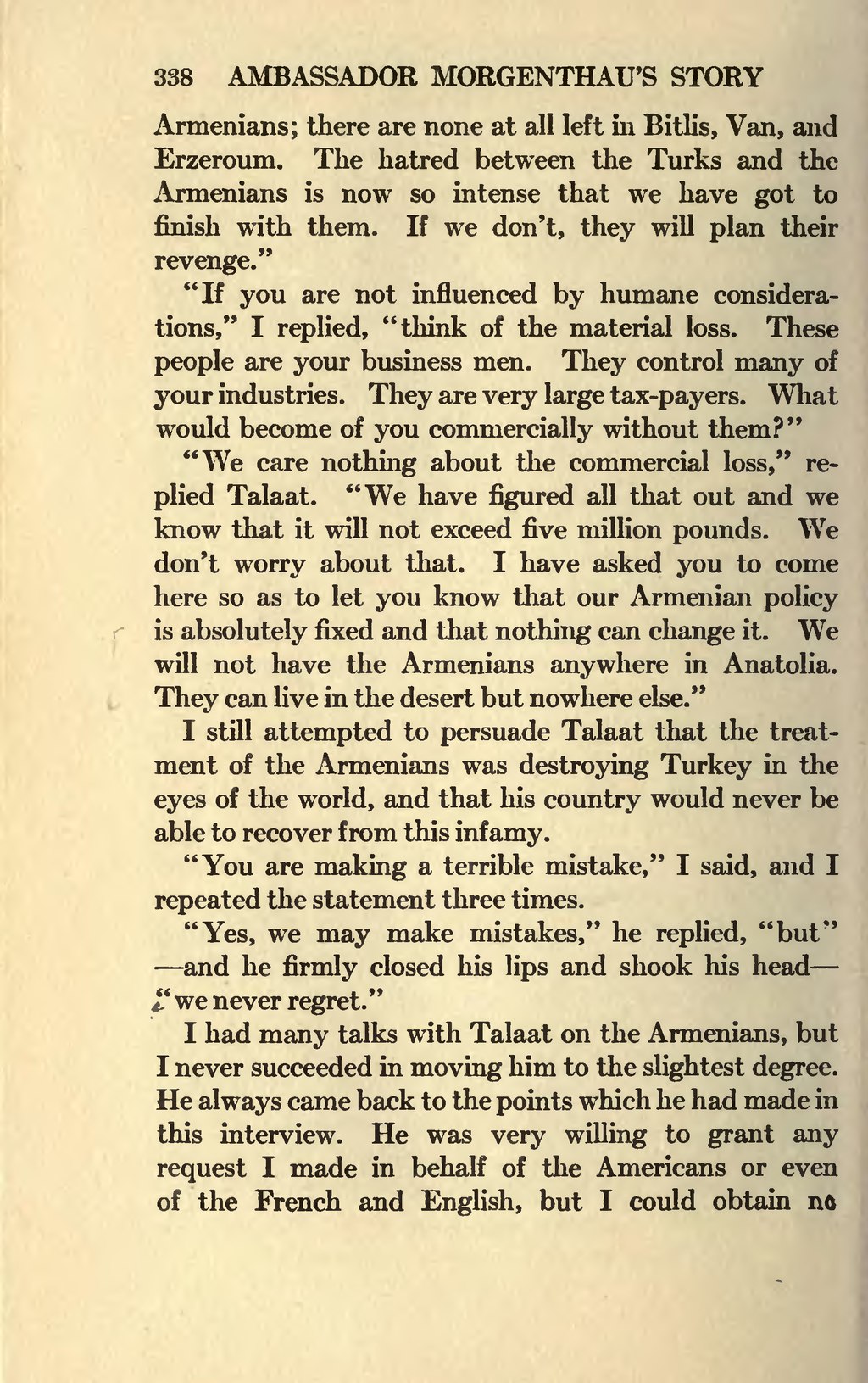Armenians; there are none at all left in Bitlis, Van, and Erzeroum. The hatred between the Turks and the Armenians is now so intense that we have got to finish with them. If we don't, they will plan their revenge."
"If you are not influenced by humane considerations," I replied, "think of the material loss. These people are your business men. They control many of your industries. They are very large tax-payers. What would become of you commercially without them?"
"We care nothing about the commercial loss," replied Talaat. "We have figured all that out and we know that it will not exceed five million pounds. We don't worry about that. I have asked you to come here so as to let you know that our Armenian policy is absolutely fixed and that nothing can change it. We will not have the Armenians anywhere in Anatolia. They can live in the desert but nowhere else."
I still attempted to persuade Talaat that the treatment of the Armenians was destroying Turkey in the eyes of the world, and that his country would never be able to recover from this infamy.
"You are making a terrible mistake," I said, and I repeated the statement three times.
"Yes, we may make mistakes," he replied, "but"—and he firmly closed his lips and shook his head—" we never regret."
I had many talks with Talaat on the Armenians, but I never succeeded in moving him to the slightest degree. He always came back to the points which he had made in this interview. He was very willing to grant any request I made in behalf of the Americans or even of the French and English, but I could obtain no
